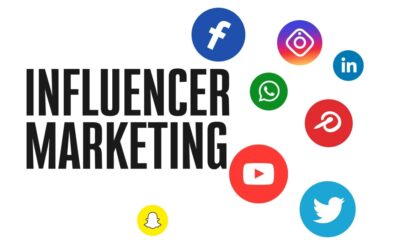Business
How to Use Relationship Marketing Strategies and Examples to Increase Customer Lifetime Value

You would prefer to have one trustworthy friend than ten sketchy acquaintances when it comes to friendship. The concept is significant to both customers and brands, and the reason for this is the great importance placed on long-term partnerships. Far more important than 10 one-time buyers who pounced on a clearance sale is one devoted, repeat consumer who regularly purchases from your brand and recommends it to others. Relationship marketing’s primary goal is to cultivate these devoted clients.
How does relationship marketing work?
Relationship marketing is an advertising approach that uses durable, strong customer relationships to promote brand loyalty and repeat business. Relationship marketing tactics prioritize long-term customer retention and engagement above other forms of advertising, which concentrate on short-term sales growth. An engaged client base is more likely to make repeat purchases and recommend the company to others, which makes relationship marketing strategies essential.
Benefits of relationship marketing
- Cost-effectiveness
- Insights
- Brand advocates
- Upselling opportunities
The following are some advantages of an effective relationship marketing plan:
Cost-effectiveness
According to certain calculations, acquiring new customers can cost five to 25 times as much as keeping current ones. Maintaining a current customer base that is already devoted to your product and has accepted its value proposition is significantly simpler. Consumers who have a strong sense of connection to your brand are inclined to make larger purchases from you in the long run, increasing your customer lifetime value (CLV), or the total profit you make from them.
Insights
It takes more than just sales to keep tight ties with customers. Brands may learn about the wants and preferences of their customers when they establish a genuine relationship and dialogue with their community. This can happen through direct interaction, social media engagement, reviews, customer surveys, or other forms of customer feedback.
This greater understanding is significant because it may inform long-term business goals, provide concepts for new goods, and improve marketing methods.
Brand advocates
Your greatest supporters are your clients. Developing enduring connections with a focus on the needs of your customers helps foster brand community and loyalty. Content consumers are more inclined to tell others about your products, and these word-of-mouth recommendations can lead to expansion and client acquisition.
Opportunities for upselling
Customers who have been with a company for a long time are usually more open to cross-selling and upselling tactics (like offering a package of related software products) and upselling (like a premium version of a product they appreciate). Finding and seizing these chances can be made even more successful by utilizing messaging tools like email marketing campaigns and purchase history data.
- Relationship marketing tactics
- Loyalty programs
- Two-way social media conversations
- Referral programs
- Personalized communication
- Community building
- Content marketing
Companies can use the following strategic relationship marketing techniques:
Loyalty programs
Offer discounts, points, or special benefits like first access to new products to reward dedicated customers. Additionally, certain companies take part in “surprise and delight” initiatives, which include delivering surprise gift cards or including extra things with orders.
Because loyalty programs show your company values its clients, they can contribute to the development of strong connections. Customers may become more dedicated to a company and likely to make repeat purchases if they feel that these actions are appreciated.
Two-way social media conversations
A discussion between the participants is necessary for a true discourse, and this is also true in the marketing setting. Respond to messages, comments, and mentions of your brand on social media to maintain active consumer interaction. In addition to gathering valuable insights into consumer experiences and opinions, you’ll leave a favorable impression as a community-engaged business.
Referral programs
Your existing customers are your greatest brand ambassadors, and by rewarding them for referrals, you can encourage them to spread the word about your company. Customers can share referral links with their friends by giving them an incentive such as “Give $20, get $20.” Alternatively, you might use alternative referral program concepts like exclusive access and social media competitions.
Personalized communication
Everyone enjoys feeling special, and you can help your customers feel that way by demonstrating your understanding and concern for them. It can be very beneficial to just include your customer’s name in chat responses and email subject lines.
Think about using client data as well, such as details about past purchases, sales, birthdays, and interests. A post-purchase email marketing campaign, for instance, can inquire about the satisfaction of a certain product from your clients, gathering feedback and encouraging them to contact you for support. Sending happy birthday wishes together with a 10% off coupon is another thought.
Community building
Make room for your customers to engage with one another and your brand. These community venues could be in-person events like pop-up stores, in-store workshops, and industry conferences, or they could be virtual like social media platforms, online chats, webinars, and online chat rooms.
Content marketing
You may start a content marketing strategy that helps your clients along their journeys when you have a firm understanding of their demands. A portion of this information might be associated with your brand, such as helpful documentation about a certain product or guides demonstrating the functionality of your service. Some may come from outside sources, such as newsletters that provide useful links to local events or news in your field.
The goal of all content, regardless of its format or kind, is to add value for your target audience while simultaneously raising brand awareness.
-

 Business4 weeks ago
Business4 weeks agoHow to fill MSME Form 1? Step-by-Step Guide
-
Business4 weeks ago
From Marine to Chief: The Leadership Journey of Sean Mannix
-

 Gadget4 weeks ago
Gadget4 weeks agoAfter Grand Success on BLDC Ceiling Fan, Eff4 Is Launching Smart Bulb
-

 Festivals & Events4 weeks ago
Festivals & Events4 weeks agoGoogle Celebrates Cherry Blossom Season with Animated Doodle
-

 Business2 weeks ago
Business2 weeks agoPrakash and Kamal Hinduja: Driving Social and Environmental Change
-
Education3 weeks ago
Fred DuVal: University Leadership as a Critical Resource for Climate Change Research and Life-Saving Solutions
-

 Sports4 weeks ago
Sports4 weeks ago2025 NASCAR Craftsman Truck Series Baptist Health 200 at Homestead-Miami Speedway: Race Preview, Prediction, Schedule, Entry List, Drivers to Watch and How to Watch
-

 Health2 weeks ago
Health2 weeks agoThe Hinduja Brothers Commitment to Global Health: Empowering Communities Across Borders

























